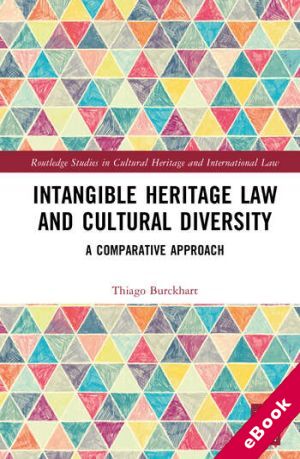
The device(s) you use to access the eBook content must be authorized with an Adobe ID before you download the product otherwise it will fail to register correctly.
For further information see https://www.wildy.com/ebook-formats
Once the order is confirmed an automated e-mail will be sent to you to allow you to download the eBook.
All eBooks are supplied firm sale and cannot be returned. If you believe there is a fault with your eBook then contact us on ebooks@wildy.com and we will help in resolving the issue. This does not affect your statutory rights.
This book explores the intricate relationship between intangible cultural heritage (ICH) and cultural diversity (CD), focusing on the challenges posed by integrating CD within legal and policy frameworks for ICH safeguarding.
As groups, communities, and individuals increasingly advocate for the recognition of their cultural practices, the governance of CD in ICH law reveals significant tensions. These tensions are particularly apparent in countries with varied legal traditions and political landscapes, such as Brazil and France. Despite sociological and anthropological insights into this, legal analysis of the ICH-CD relationship remains underdeveloped at both international and national levels. Through a comparative analysis, the book examines three primary mechanisms of the 2003 UNESCO Convention on the Safeguarding of Intangible Cultural Heritage: the creation of national inventories, the engagement of communities in safeguarding processes, and the implementation of safeguarding measures. These mechanisms are tested within each country’s legal context to understand how CD shapes the effectiveness of ICH law at national and international levels. By focusing on Brazil and France, this book contributes to the theoretical and practical development of cultural heritage law, offering a model for fostering cultural diversity and empowering communities to take active roles in the management and preservation of their intangible cultural heritage.
This book will be of interest to researchers in the field of comparative law, public international law, cultural heritage studies, and public policy.